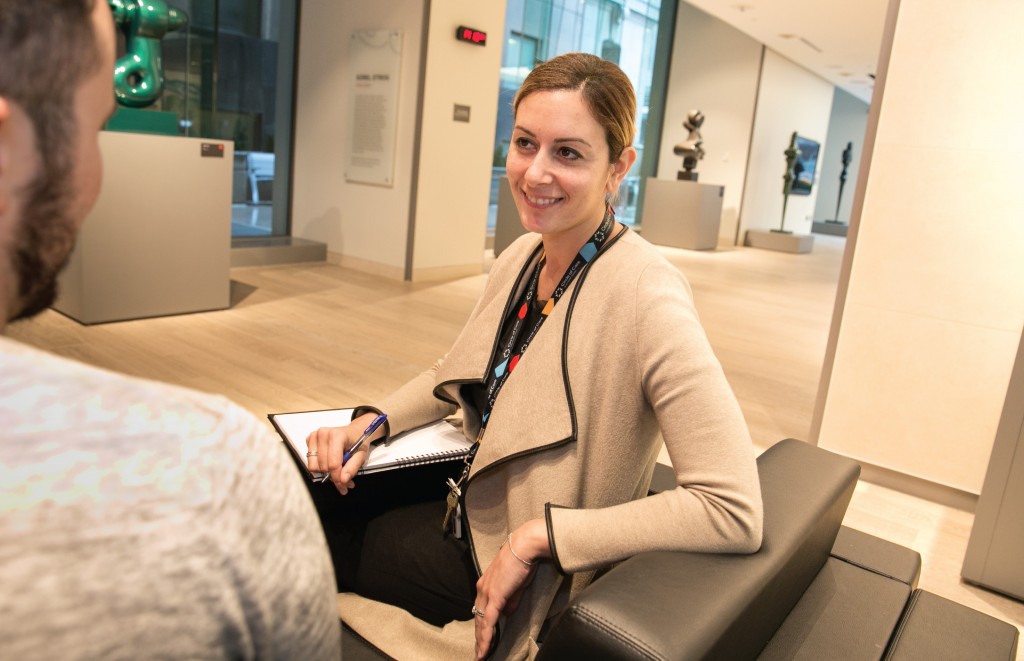A Smoother Passage from Hospital to Home
Toward the end of a hospital stay, it can be common for patients and caregivers to feel anxious about the transition back home due to a lack of understanding around care management and how to access community supports that will aid in the recovery process. To help address this gap, a collaborative pilot program was launched at Mount Sinai Hospital that leverages Circle of Care’s expertise in the home health care sector.
Through a generous donation from the Max and Larry Enkin Family Foundation, a community social worker from Circle of Care was assigned to Mount Sinai Hospital as a dedicated Social Work Care Navigator. In this role, Revital Shuster works with patients and families pre- and post-discharge to make sure the appropriate community supports are put in place to ensure a successful transition home, and to reduce the risk of readmission.
“We know that patients ultimately want to be back home with their loved ones,” says Shuster. “But it can be overwhelming to figure out who to call for help. By connecting people to resources and advocating on their behalf, the transition from hospital to home is being significantly improved.”
The Social Work Care Navigator pilot is one of Sinai Health System’s first integration initiatives. Typically, a hospital social worker provides recommendations for resources and supports in the community upon discharge, but for patients with complex health issues and/or multiple social support requirements, the coordination of these services is often difficult and overwhelming. By connecting the Care Navigator with patients who require significant post-discharge support, the intended result is a more seamless transition that paves the way to better outcomes.
“Our Social Work Care Navigator’s role extends beyond the hospital walls and follows the patient back into the community,” says Carey Lucki, CEO, Circle of Care and VP, Sinai Health System. “This warm hand-off ensures hospital staff feel confident about their discharge plan, and the likelihood of a return to a crowded Emergency Department or hospital readmission is reduced.”
In fact, since the program began, over 90% of complex patients who had involvement with Shuster have remained at home. Data collection is ongoing as we continue to evolve and develop this role.



